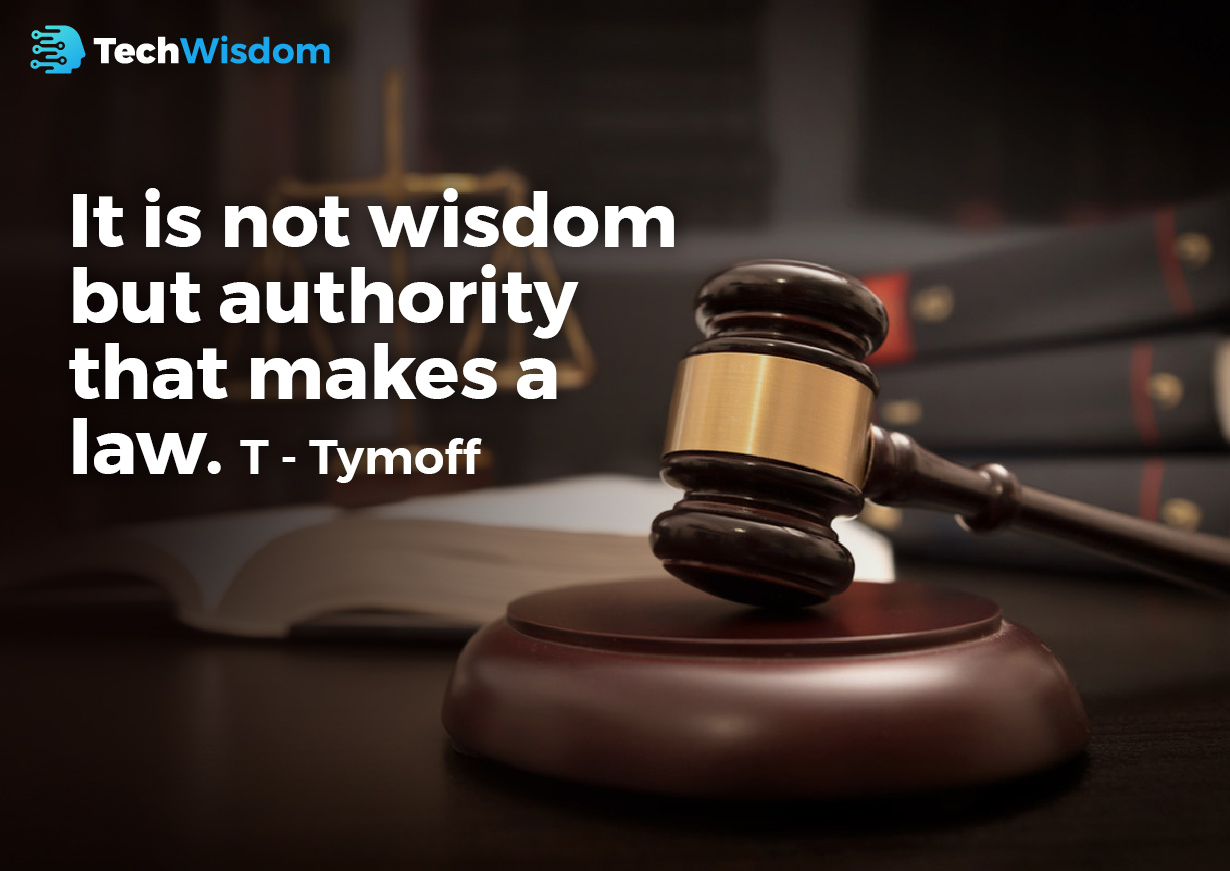No society is conveyed without laws, which are the spine of the general public, helping it to keep up and maintain its feelings or requests. However, the specific principles that inform this lawmaking are often disputed. Quote by T. Tymoff:- “It is not wisdom but authority that makes a law” — Asking us to critically evaluate the mentality of implementing laws. So this statement implies that laws are not really about the wisdom of them but as a function in power to enforce. This means that we will also discuss the meaning and consequences of this phrase in this article concerning historical and contemporary legal tendencies.
The Relationship between Authority and Wisdom in Law making quotation of T. Tymoff, “It is not wisdom which makes laws but authority soldiers,” emphasizes that the legislation is essentially a product Nike outlet store guide”>nike clearance together with control alternatively than realized wiseness. Authority is the influence to secure the correct behavior, traditionally bestowed on states or rulers. Wisdom, conversely, reflects knowledge and uses wisdom because it exercises virtues and values instead. The Law should reflect the basis of wisdom to balance fairness and justice. Yet, as per Tymoff’s note, he who makes the Law is more authoritative than wise in principle.
Context: Tradition (Prevail Over the Law)
Laws have been made by those who rule throughout the ages and the type of lawmakers whose very blessing has done without consideration for wisdom or justice. In ancient civilizations, like Babylon, for instance, laws were imposed by the authority of a king (e.g., Hammurabi’s Code). The Roman Legal System also showed the domination of the ruling elite with laws created to safeguard those in power. Any historian of Law will bear out It is not wisdom but authority that makes a law. t – tymoff.
Authority in Modern Legal Systems

In democratic societies, laws are supposed to be made based on justice. There is still much importance attached to authority that helps function democracies properly and keeps law-abiding citizens protected against injustice; Elan may be right—elected officials have the authority to pass and enforce laws, even if they are not always wise from the powerful interest groups that sway lawmaking policies that cater to vested interests rather than do what is best for society. They agreed with It is not wisdom but authority that makes a law. t – tymoff.
Also, an impartial judiciary can be swayed by power holders. Judges are frequently appointed by political leaders, and their rulings may indeed serve the interests of those who appointed them. This helps to promote the notion that legal processes are determined by authority rather than actual wisdom.
Risks of Authority-Driven Lawmaking

Here, wisdom serves as the guiding force behind lawmaking. An entirely different sort of danger is put at bay, where authority rises to assume its place and dictate our laws — or worse yet, proposed legislation fails to see any direction because such goes beyond being largely ruled by either one… then we are in for a world of hurt. Ignore your history only if you wish. A Tyranny The greatest risk of democracy is inscribed on a tablet. The entity in power creates laws that are more to control anyone other than themselves. There was a concern that it would erode the confidence of citizens in our legal system and cause social disturbances. The warning that T. Timeof’s quote gives in connection with the creation of laws: That authority may one day exceed wisdom
The Depiction Pitting Wisdom Against Authority
Although T. Tymoff suggests that authority rules the roost on an equal footing with Law, he does not in any way imply that wisdom is irrelevant to the formation of laws. Rather, it only underscores the importance of combining authority and wisdom. Introducing transparency, promoting public participation and ethical leadership, and guaranteeing judicial independence are essential in achieving this balance. In that way, we can build a legal system capable of being implemented and also just and sensible.
Conclusion: Thinking About T. Tymoff’s Insight
As T. Tymoff succinctly says, Law is not a rational enterprise, so “It is not wisdom but authority that makes a law. t – tymoff” By all means, laws need authority backed by force to enforce them, and that is why wisdom should rule; otherwise, the outcome becomes an asinine miscarriage of justice. We can adequately make the legal system serve society by admitting our pending doom in Tymoff’s quote and seeking a balance between authority and wisdom.












